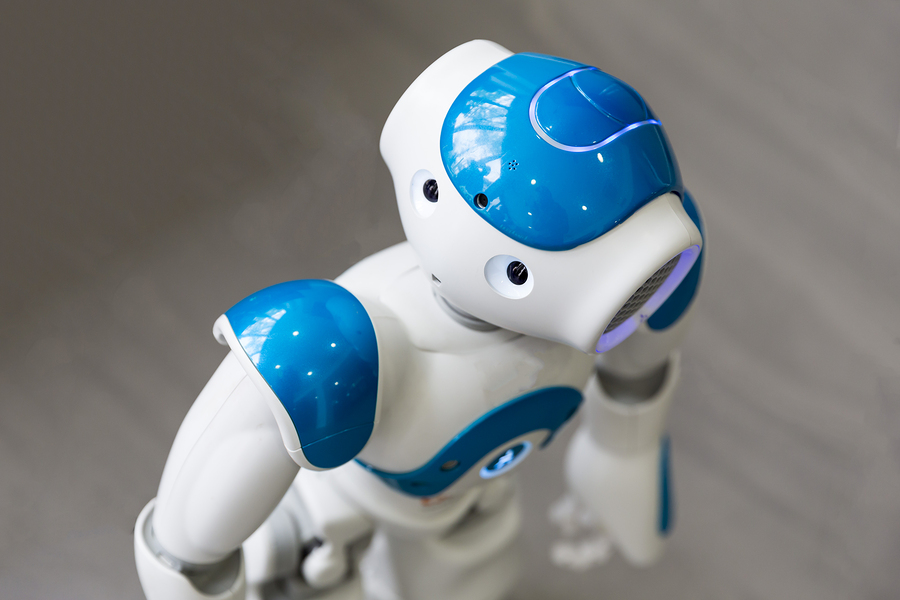
Robohub.org
Robohub roundtable: Public perceptions of robotics and AI, what’s your pet peeve?

In this Roundtable edition, we asked our experts: When it comes to public perceptions of robotics and AI, what are your pet peeves? Are there things you wish people would listen to a little more closely? Check out the answers below.
This Roundtable features Sabine Hauert, Audrow Nash, AJung Moon, Samantha Payne, Frank Tobe, Kassie Perlongo, and John Payne, all providing a range of perspectives across the board from academia, research, business, and the general public.
You just can’t get away from it. As the field of robotics makes incremental steps towards better understanding and evolving more useful technology, headlines and hackneyed hype creep back onto the front pages. You’ve heard it all before: Will robots take over? Robots will take your job. The Terminator could become real soon enough.
Loyal Robohub readers know that our mission is to promote high-quality, balanced, robotics related news, research, opinions, and everything in between, on what’s happening globally as this discipline continues to challenge the boundaries of technology. We look to experts for the vast majority of our content and provide scientists a platform to discuss their research in their words, without media spin.
It can be stressful and upsetting when a carefully crafted piece, interview, or discussion is misquoted, or “spun” a certain way. Hours of carefully constructed work gone, and the focus is diverted from research towards damage control. Or perhaps the time spent planning an informative lecture on how robotics can be instrumental to fill gaps in health care (for example, in nursing) is undone when a two-way dialogue devolves into anxiety and ranting about how robots are stealing jobs from people.
Our experts share their thoughts:
Sabine, President of Robohub
“Number one – hype: The portrayal of robotics and AI in the media often does not correspond to the reality of what is achievable today. There is too much science fiction, too few facts.
Number two- opportunism: Robotics is used as a sales gimmick to do everything from raise money for institutions that would like to prevent a robopocalypse, to sell conferences, media, and products that are often disconnected from robotics.
Number three – difficulty: It’s still so hard to make robots that are useful outside of the lab. I always feel things should be moving quicker, yet we are still solving one problem at a time in a laboratory setting. As an example, I recently tried to purchase off-the-shelf aerial robots to do swarm work, assuming the technology had advanced enough since my PhD, 6 years ago, for this to work out of the box. Wrong – the problems were exactly the same as when I was studying this, even though the single robot platforms are much better than before. Note that the difficulty also makes this field so exciting to research!
Number four – lack of diversity: There aren’t enough of women and minorities in robotics, although we’re working on it!”
AJung Moon, PhD Student at CARIS lab
“I agree with Sabine. And I’d also like to add that there’s too much emphasis on the job question. There’s plenty of other societal impact, issues of normative nature that are all very much part of pushing the robotics technologies forward.”
John Payne, Agricultural Robotics
“My pet peeve is the widespread focus on designing machines to do the obvious things, what people already do pretty well and don’t mind doing, when the greatest benefits to be had from robotics are likely to come from designing machines for less obvious needed tasks that are currently neglected, because people either can’t or won’t do them.
Take for example the maintenance of waterways to bring erosion under control. It involves careful placement of materials like cobblestones, tightly together, so they won’t wash away with the next heavy rain. You could use a backhoe for this, but it would be tedious, since you want to use stones that are small enough so they don’t pack the soil and so enough light penetrates between them for grass to grow through the cracks. A few people are willing to do this work, but not nearly enough to address the problem.”
Samantha Payne, COO Open Bionics
“Hype. Robotics is used a buzzword used by marketers and journalists to make eye-catching copy. Often they’re not interested in reporting the actual way a robotic device works, they want to paint a simple picture and hint at possible implications for the future. It’s annoying because journalists are medium and should report accurate information about technology. We often hear people expecting terminator bionic arms because of stories they’ve read reporting with inaccurate details. Key point is the number of ‘mind-controlled’ bionic arms reported in the news when they all rely on muscle sensing.
Jobs. ‘When will the robots take all our jobs? What will happen when the robots take our jobs?’ I don’t know why we jump to these assumptions. Robots are tools, here to help, here to work alongside us and make life easier. This topic wouldn’t be a pet peeve if the topic was measured and not always presented in terms of extremist outcomes.”
Frank Tobe, Editor for The Robot Report
“Media spin is my pet peeve. If you look at what is happening in AI, the real thing is deep learning and in particular the ability for software to write new software. When you see that process work, it’s really a combination of threatening, fascinating, and disruptive. Unfortunately, the media defines it as threatening because it makes for better headlines.”
Audrow Nash, Director Robots Podcast
“There’s a lot of misunderstanding that comes from ignorance. If you implement anything using state of the art machine learning techniques, you’ll see how far away we are from making anything generally intelligent. A lot of these misconceptions may come from when we listen to people we perceive as being really smart, and they speak outside of their confidences. This is more of a general frustration for me, I suppose. I’m not saying everyone should become an expert on machine learning, or take a course on machines learning, of course, we need to specialise to a certain extent to get anywhere as a society. But what I do think is that we should chose our experts carefully.”
Kassie Perlongo, Managing Editor of Robohub
“I have two. My biggest is that whenever something new and exciting in robotics comes out it can be disheartening to see the stories accompanied with Terminator images. We’ve had enough of this and I think it’s unfair that new advancements should accompany a doom-and-gloom mental image. The second is that whenever I speak to people who are interested in robotics, but not directly involved, they think their opinion doesn’t matter. That’s not true at all! Robotics is crossing into so many different areas, it’s good to remember even if you’re not directly involved in the research you can be an informed citizen and offer productive contributions, or thoughtful commentary.”
Do you feel we covered a number of the aspects? Anything else you would you add? Let us know in the comments!
If you enjoyed this article, you may also want to read our other Roundtables:
- Robohub roundtable: Why do robotics crowdfunding projects fail?
- Robohub roundtable: Cybathlon and advancements in prosthetics
- Robohub roundtable: Job loss through automation, Foxconn controversy
- Robohub roundtable: Why is it so difficult to define ‘robot’?
- Robohub roundtable: Robotics and space exploration
See all the latest robotics news on Robohub, or sign up for our weekly newsletter.
tags: Robohub roundtable





